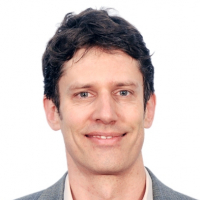Joe Renouard
 JOSEPH RENOUARD, Ph.D., specializes in American foreign policy, American history, human rights in international affairs, and transatlantic relations. His most recent book is Human Rights in American Foreign Policy: From the 1960s to the Soviet Collapse (Penn Press). He has also contributed essays to The Los Angeles Times, The National Interest, The Diplomat, American Diplomacy, The Washington Examiner, The Journal of American Culture, The Journal of Transatlantic Studies, HNN, The Cicero Foundation, The Prague Post, Education about Asia, and several edited collections, including Donald E. Abelson and Stephen Brooks, eds., Transatlantic Relations: Challenge and Resilience (forthcoming); Matthias Schulz and Thomas A. Schwartz, eds., The Strained Alliance: Conflict and Cooperation in US-European Relations from Nixon to Carter; Cristina Crespo Palomares & David García Cantalapiedra, eds., North and South: The United States, the European Union, and the Developing World; William Michael Schmidli and Robert Pee, eds., The Reagan Administration, the Cold War, and the Transition to Democracy Promotion; Roberta Haar and Neil Wynn, eds., Transatlantic Conflict and Consensus: Culture, History & Politics; V. Scott Kaufman, ed., A Companion to Gerald R. Ford and Jimmy Carter; and Christos G. Frentzos and Antonio Thompson, eds., The Routledge Handbook of U.S. Diplomatic and Military History. His ideas have been featured in such media outlets as the South China Morning Post and ABC Radio Australia. At present, he is co-editing a book on transatlantic relations and China, co-editing a document collection of American and Chinese primary sources, and co-translating Chinese author Ah Long’s novel, Nanjing (also known as 南京血祭, Nanjing Blood Sacrifice). He is also writing a short book on the Republic-era architecture of China’s former capital city.
JOSEPH RENOUARD, Ph.D., specializes in American foreign policy, American history, human rights in international affairs, and transatlantic relations. His most recent book is Human Rights in American Foreign Policy: From the 1960s to the Soviet Collapse (Penn Press). He has also contributed essays to The Los Angeles Times, The National Interest, The Diplomat, American Diplomacy, The Washington Examiner, The Journal of American Culture, The Journal of Transatlantic Studies, HNN, The Cicero Foundation, The Prague Post, Education about Asia, and several edited collections, including Donald E. Abelson and Stephen Brooks, eds., Transatlantic Relations: Challenge and Resilience (forthcoming); Matthias Schulz and Thomas A. Schwartz, eds., The Strained Alliance: Conflict and Cooperation in US-European Relations from Nixon to Carter; Cristina Crespo Palomares & David García Cantalapiedra, eds., North and South: The United States, the European Union, and the Developing World; William Michael Schmidli and Robert Pee, eds., The Reagan Administration, the Cold War, and the Transition to Democracy Promotion; Roberta Haar and Neil Wynn, eds., Transatlantic Conflict and Consensus: Culture, History & Politics; V. Scott Kaufman, ed., A Companion to Gerald R. Ford and Jimmy Carter; and Christos G. Frentzos and Antonio Thompson, eds., The Routledge Handbook of U.S. Diplomatic and Military History. His ideas have been featured in such media outlets as the South China Morning Post and ABC Radio Australia. At present, he is co-editing a book on transatlantic relations and China, co-editing a document collection of American and Chinese primary sources, and co-translating Chinese author Ah Long’s novel, Nanjing (also known as 南京血祭, Nanjing Blood Sacrifice). He is also writing a short book on the Republic-era architecture of China’s former capital city.
Dr. Renouard has lived and worked in the United States, China, the Czech Republic, and Spain, and he has taught at Emory University, Oxford College, Virginia Tech, Kennesaw State University, and The Citadel. In recent years, he has received fellowships and research grants from Princeton University, the American Philosophical Society, the Huntington Library, and the George C. Marshall Foundation.